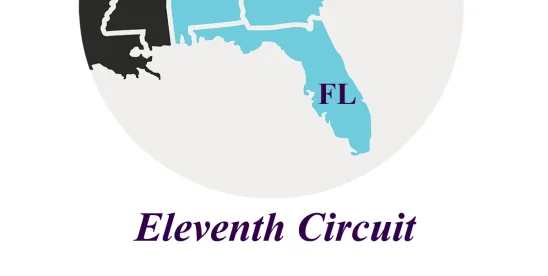On August 14, 2024, a judge in the U.S. District Court for the Middle District of Florida ruled against the Federal Trade Commission’s (FTC) efforts to implement a nationwide noncompete ban.
The Florida court’s decision aligns with a July 3, 2024, decision from the U.S. District Court for the Northern District of Texas, which also issued a preliminary injunction enjoining the FTC noncompete rule. However, the Florida and Texas injunctions are limited to the parties in those respective cases, leaving employers around the country in a state of uncertainty with the rule’s September 4, 2024, effective date quickly approaching.
Quick Hits
- On April 23, 2024, the FTC voted to adopt a final rule that will ban nearly all noncompete agreements in employment contracts.
- Two federal district courts have issued injunctions against the FTC rule, concluding that the agency likely acted improperly and outside its statutory authority in adopting the rule. However, the injunctions are limited to the parties in those cases.
- Meanwhile, a federal court in Pennsylvania reached the opposite conclusion, holding the FTC’s noncompete rule falls within the FTC’s authority under the FTC Act of 1914.
- The FTC rule is set to go into effect on September 4, 2024, unless a court issues an order delaying its implementation.
On July 2, 2024, a Florida-based real estate residential housing company, Properties of the Villages, Inc., moved for a preliminary injunction to enjoin the FTC’s final rule banning most noncompete agreements between employers and employees. The company sought an injunction to stay the effective date of the rule, which is set to go into effect on September 4, 2024.
Among other things, Properties of the Villages argued the FTC rule exceeded the agency’s statutory authority. The company argued the rule’s impact would impermissibly displace state laws on the issue and “reshape the contractual relationships between business and individuals on an unprecedented scale.”
On August 14, 2024, the U.S. District Court for the Middle District of Florida held a hearing on Properties of the Villages’ motion for preliminary injunction. At the conclusion of the hearing, Judge Timothy Corrigan granted the company’s injunction request and read his decision from the bench.
The court concluded the FTC rule likely fell under the “major questions doctrine,” which requires agencies to “point to clear congressional authorization” when they issue regulatory rules of “extraordinary … economic and political significance.” The Florida court found that “the sweep and breadth” of the FTC’s noncompete ban presents a “major question” that requires clear congressional authorization.
Notably, the court refused to enter “an injunction of nationwide application[,]” instead limiting its injunction to the plaintiff in the case. As a result, the FTC rule survives on the national stage—at least for now.
The court’s ruling is the third federal court decision to address the FTC noncompete rule. On July 3, 2024, the U.S. District Court for the Northern District of Texas, in Ryan, LLC v. Federal Trade Commission, granted the plaintiffs’ request for preliminary injunctive relief and stayed the effective date of the rule, but limited the scope of the injunction to the parties in the case. The Texas federal court held that the noncompete rule likely exceeded the FTC’s congressional authority and appeared to be an arbitrary and capricious exercise of the FTC’s rulemaking powers.
On the other hand, on July 23, 2024, a judge of the U.S. District Court for the Eastern District of Pennsylvania reached the opposite conclusion in ATS Tree Services, LLC v. Federal Trade Commission. The Pennsylvania federal court held that the FTC acted “within its authority under the [FTC] Act in designating all non-compete clauses as ‘unfair methods of competition.’” Notably, the court also rejected arguments that the noncompete rule failed under the “major questions doctrine.” This growing split in federal court authority signals the issue is very likely to be the subject of further lawsuits and eventual appellate court review.
The court in Ryan is set to issue a final ruling on the merits on or before August 30, which may result in a nationwide injunction blocking implementation of the FTC rule. But as of now, the FTC rule is still scheduled to become effective on September 4. Employers should keep abreast of further litigation developments in the coming weeks while preparing a game plan for what to do if the FTC rule goes into effect on September 4.






 />i
/>i

